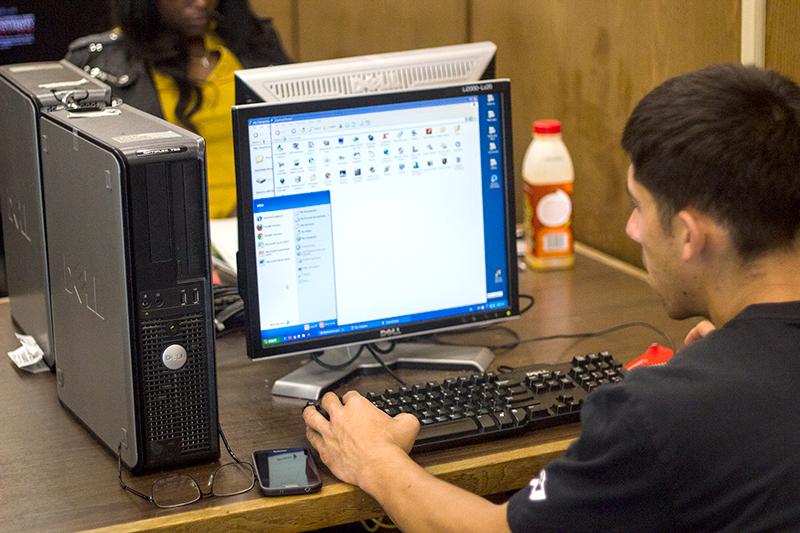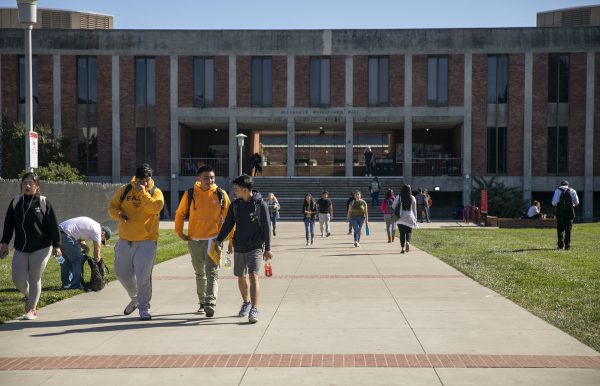Campus phases out computers running on Windows XP
Campus computers in the library run on Windows XP, which is no longer supported by Microsoft.
May 8, 2014
As of April 8, 2014, Microsoft discontinued support for their Windows XP operating system. This means Microsoft will no longer release security updates and give technical support for the XP operating system. As a result, this could expose XP users to potential vulnerability through malware, malicious sites, spyware and viruses.
Since the release of Microsoft Windows 7 in 2009, California State University, East Bay, has been working on converting the 3,200 computers on campus to the new software from Windows XP.
“All university owned Windows computers will be upgraded to Windows 7, or replaced,” said Borre Ulrichsen, chief information officer and associate vice president of Information Technology Services on campus. “At some point, security risks will result in XP computers no longer being allowed on the university network.”
Many of the remaining computers running XP are in the library, but computer labs, offices and common areas around campus have some XP computers. “Changes so far have focused on computer labs and faculty/staff computers,” said Ulrichsen.
“The cost of replacing old computers is always weighed against the cost of other initiatives to support student success,” said Ulrichsen. “Holding on to systems like XP that held their value well over the years helped the university through some of the budget cutbacks we suffered.”
Up to date, about 2000 computers have been replaced, he said.
Although the school is running on the McAfee antivirus system, Ulrichsen said, “the security patches for the [Windows XP] system will increase.“
According to Lincoln Spector, contributing editor at PC World, in his article about the discontinued support for XP, the threats users have to worry about in 2014 after discontinued support, will not be written to take advantage of holes in an outdated operating system that few people are still using.
Ulrichsen explains the upgrade to Windows 7 has taken so long due to the limited budget. The university does have the budget to replace computers on campus. The count for how many total computers need to be replaced is yet to be finalized.
According to Alejandro Rivera, computer technician at Fry’s Electronics, “not all computers can be upgraded from XP to Windows 7 due to outdated hardware, which results in the need to purchase new computers.”
Ulrichsen said the budget for replacing computers was about $550,000 for the 2013/14 school year. He also said “we expect the budget to be the same for next year.”
“Our goal is to upgrade, replace or retire all XP machines by the end of the fall quarter,” said Ulrichsen.
According to Ulrichsen, to protect university computers from possible intrusions until all switches are made from XP, the team is looking into not only purchasing extended security support for XP from a third party, but also, setting up a separate network with extra security for XP machines.
Rivera explains that setting up a separate network for security would be very beneficial because it would be setting up a firewall on all incoming traffic. Each computer will have the additional protection from the firewall.
“My advice would be if you’re using it for limited purposes, then you don’t have to upgrade, but if you’re more into business, and school, you can go for any of our newer versions of the operating system, ” said Ashish Sharfa, Microsoft support technician. He also says that to his knowledge students are in no direct risk.
















